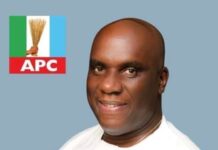 Prejudice has become profitable in Nigeria. It’s boom season for ethnic entrepreneurs and, indeed, for sundry purveyors of hate. These traders in prejudice do not inhabit any special corners of Nigeria. They are everywhere and they profit from nearly everything. They cut across generations, class, gender, creed. Nothing escapes their attention and everything is sooner or later an ethnic conspiracy or an excuse for a slur on an identity group.
Prejudice has become profitable in Nigeria. It’s boom season for ethnic entrepreneurs and, indeed, for sundry purveyors of hate. These traders in prejudice do not inhabit any special corners of Nigeria. They are everywhere and they profit from nearly everything. They cut across generations, class, gender, creed. Nothing escapes their attention and everything is sooner or later an ethnic conspiracy or an excuse for a slur on an identity group.
To be fair, these profiteers in prejudice have received a lot of help recently. Governors in different parts of Nigeria who swore to defend the Constitution of Nigeria have resorted to removing Nigerians from one part of the country to another under various artifices from security to specious humanitarianism. Others have sacked workers in the public service of their states based on claims that the affected workers are supposedly aliens from neighbouring states.
All this takes place notwithstanding that Nigeria’s constitution expressly prohibits discrimination on grounds of place of origin, ethnicity or sex. The same constitution entitles all Nigerians to move freely and live anywhere within the country.
Yet, women have routinely lost access to and preferment within the public service because they married spouses from outside what is supposed to be their state of origin.
It gets worse: prejudice feeds extremism. When a bomb goes off in No-Man’s Land or a security operation somewhere reports mass casualties, the beer-parlour – and even predominant policy – inquiry no less, often turns on the ethnic or sectarian identities of those affected.
Most no longer seem to harbor the capability for pause to mourn the collective injuries to our country, to share in the grief of people like who must mourn the loss of loved ones or to transmit solidarity or compassion to communities living under the weight of victimization.
Transcendentalism is no longer a requirement for leadership. To have a place at the table of leadership, you must corral and bring along a filial collective tied to nativity.
Co-existence has acquired new enemies. Online chat rooms and electronic communities have not helped. There is a frightening electronic traffic in prejudice and vituperation. It is as if some electronic platforms are designed to spike their own traffic metrics by deliberately promoting echo-chambers in prejudice.
All this traffic in prejudice misses one essential and obvious point. In Nigeria, there are only two tribes that matter: the rulers and the others. The former are an overwhelming minority. The rest of us are “the others”. And when you are “the other” in Nigeria, anything can happen to you.
The idea of an “overwhelming minority” sounds inherently self-contradictory but not when you look at it closely. In a democracy, the majority supposedly confers power. In reality, a minority necessarily exercises and profits from it.
In Nigeria a narrow band of interests has always controlled our patrimony. The membership of this narrow band comes from all over the country. When the going is good, they care little about the others. When they encounter the occasional difficulty in carving up our patrimony, they enlist others in manufactured divisions of ethnicity and sect. And they litter the land with red meat for profiteers in prejudice.
All over our laws, being poor is criminalized. The law establishing the Abuja Environmental Protection Board describes hardworking women selling agricultural produce or seeking other legitimate livelihood in day time as “solid waste” and renders them liable to arbitrary arrest.
Unemployed persons are punished for being “idle and disorderly”. Poor people in the wrong place are “vagabonds”. And those who suffer mental disability are “lunatics” or “mad people”.
What is notable in the recent one-way traffic in Nigerians across state borders is not where those affected come from or the race or ethnicity of those who think that the response to our admittedly profound social or political pathologies is the internal banishment of other people. It is rather that the victims are all generally poor people. To underline this point, they are also rendered nameless. As a category, we call them “beggars”.
It is as if being called a beggar is good reason for being put beneath humanity and beneath the protections of our constitution.
When states banish motorbike operators from the roads, the main reason they give is that such “beggars” constitute threats to security.
When banks preclude persons with disability – whose deposits they happily collect – from their transaction and service halls, it is because such “beggars” are unsuitable to be seen in their corporate spaces.
And when we exclude people who do not look like us from our various neighbourhoods, we call them “beggars” too.
In all these instances, we deploy these usages to excuse our inability to care or show compassion. Yet, the only thing that is beggared by all this sniffing at people who are not like us is the possibility of mutual co-existence in a viable country.
The use of the word “beggar” to describe fellow human beings and citizens says everything about the pervasiveness of status as the defining influence in how Nigeria is presently organised. This is not chosen by nature nor ordered by any ethnic or faith group.
As a policy tendency, the idea of civic entitlement, that citizens are entitled as a matter of right to certain minimum guarantees of well being and due process is now under threat in our country. This must be resisted by all who wish Nigeria well.
Difficult as it may seem, there are many ways to fight back. Leadership is important. We must offer support and incentives for aspiring leaders who are genuinely committed to promoting transcendental and non-discriminatory values and find ways to exact political penalty for those that fail to do so.
The law has a role to play. We must review our laws and remove from them provisions that penalize poverty or being different.
It also time to think about criminalizing hate speech and related crimes of purveying hate.
Related to this, proprietors and promoters of electronic communities must begin to assume greater responsibility for traffic on their platforms. Agreeing a voluntary code of good practice could be a good beginning. The National Human Rights Commission can mediate this.
Pejoratives, like “beggars”, must be discouraged in our public communications. Every person has a name and group pejoratives of this sort are themselves violations of dignity and the inherent worth of every person.
As a menu of options, this is only a beginning. There are lots more that we could do. We can at least resolve around one goal: It is time to end the open season on those who look different from us.
ODINKALU is the Chairman of the National Human Rights Commission
Follow Us On WhatsApp



